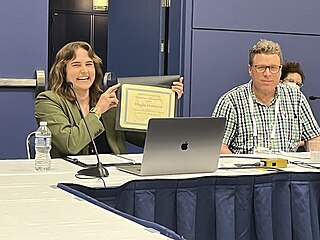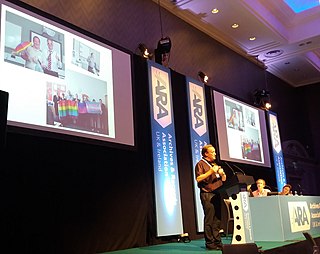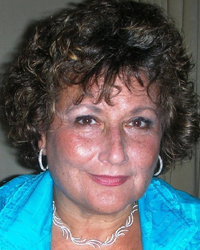The American Library Association Equality Award has been given annually by the American Library Association since 1984 in recognition of achievement for outstanding contribution toward promoting equality in the library profession, either by a sustained contribution or a single outstanding accomplishment. The award may be given for an activist or scholarly contribution in such areas as pay equity, affirmative action, legislative work and non-sexist education. [1] The inaugural award was bestowed on Margaret Myers, Director, Office of Library Personnel Resources of the American Library Association in 1984. [2]
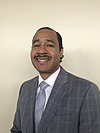
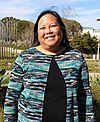



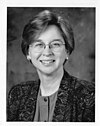

| Date | Equality Award Recipient | Contributions |
|---|---|---|
| 2024 | Felton Thomas Jr. [3] | President, Public Library Association, created Task Force on Equity, Diversity, Inclusion and Social Justice. |
| 2023 | Susan Kusel [4] | Advocate for minority concerns of Judaic librarianship, the Jewish patron community, and the ongoing struggle to have Jewish concerns included in diversity justice efforts. Library Journal Award. [5] |
| 2022 | Fulton County Library, McConnellsburg, PA, and community activists Sarah Cutchall and Emily Best. [6] | Standing up to County Commission labeling LGBTQ+ as "hate group." |
| 2021 | Joint Council of Librarians of Color (JCLC) | Purpose Statement of the JCLC is “to promote librarianship within communities of color, support literacy and the preservation of history and cultural heritage, collaborate on common issues, and to host the Joint Conference of Librarians of Color every four years.” [7] |
| 2020 | Em Claire Knowles [8] | Diversity Summits, Black Caucus of the American Library Association, Joint Conference of Librarians of Color |
| 2019 | Lorelle R. Swader [9] | Organized annual National Library Workers’ Day [10] and ALA Allied Professional Association [11] committees and taskforces focusing on diversity and inclusion, including Spectrum Scholarship and Emerging Leaders. |
| 2019 | Julius C. Jefferson Jr. [12] | Co-edited, 21st Century Black Librarian in America: Issues and Challenges , [13] advocate for equality in librarianship. |
| 2018 | Alexandra Rivera [14] | Chair, ALA Diversity Committee; Joint Council of Librarians of Color; Peer Information Counseling Program. |
| 2017 | Haipeng Li [15] | Joint Conference of Librarians of Color, President, Chinese American Librarians Association |
| 2016 | Nicole A. Cooke [16] | "staunch champion for inclusion and has led the charge in changing the education of librarians to make them better able to serve those, who to date, have been unserved or underserved." |
| 2015 | Camila Alire [17] | Author, Serving Latino Communities, [18] support of Spectrum Scholarship Initiative. |
| 2014 | Ann K. Symons [19] | "an active and effective supporter of intellectual freedom, focusing extensively on school libraries and GLBT issues." |
| 2013 | Elizabeth Martinez [20] | Co-founder of REFORMA, Co-chair, ALA policy on diversity “Equity at Issue,” developed Spectrum Scholarship program. |
| 2012 | Patricia "Patty" Wong [21] | JCLC Advocacy Award, Asian Pacific American Librarians Association, California State Library initiatives for service to diverse communities, Spectrum scholarship committees. |
| 2011 | Joan R. Giesecke [22] | As dean of libraries, University of Nebraska–Lincoln increased diversity from 2% in 2000 to 12% in 2010, Association of Research Libraries, Diversity Committee. |
| 2010 | Patricia Tarin [23] | 1991 Hispanic Librarian of the Year-REFORMA, initiated and directed Knowledge River, University of Arizona School of Information Resources and Library Science, [24] “Guidelines for Library Service to the Spanish-Speaking” (ALA, 1978). |
| 2009 | Karen Downing [25] | University of Michigan Library Diversity Award; work with ALA Spectrum initiative and "an enduring legacy of positive change in librarianship by investing her energy, passion and dedication to fostering equality throughout the profession." |
| 2008 | Liana Zhou [26] | Director, Library and Archives, Kinsey Institute for Research in Sex, Gender and Reproduction; president of the Chinese American Librarians Association. [27] |
| 2007 | Kenneth A. Yamashita [28] | Co-chair, first Joint Conference of Librarians of Color. [29] Author, "Asian/Pacific American Librarians Association— A History of APALA and Its Founders." [30] |
| 2007 | Gladys Smiley Bell [31] | Co-chair, first Joint Conference of Librarians of Color. [32] |
| 2006 | Loriene Roy [33] | President, American Indian Library Association, Anishinabe, a member of the Minnesota Chippewa Tribe, enrolled on the White Earth Reservation, member of the International Indigenous Librarians Council, author. |
| 2005 | Alma Dawson [34] | Russell B. Long Professor at the School of Library & Information Science, Louisiana State University for "leadership in affirmative action efforts in library and information science, both as a librarian and as a library educator," author, The African-American Reader’s Advisor. [35] |
| 2004 | Janet B. Wojnaroski | School library media specialist at Kent (Ohio) Roosevelt High School, "commitment to building connections between schools, institutions, and the general community, fostered awareness of African-American history and culture, brought the generations together in a shared endeavor, and preserved the history of Kent, Ohio, and its people." [36] |
| 2003 | Carla J. Stoffle | Dean of libraries, University of Arizona in Tucson "mentored countless individuals and instituted a number of programs, including Peer Information Counseling, a minority outreach program where undergraduate minority students serve as information role models to other students. She supports the recruitment and retention of librarians of color and advocated for a two-year program that brings new librarians of color to work in academic internships." [37] |
| 2002 | Clara Chu [38] | Scholar at Department of Information Studies University of California-Los Angeles who specializes in the social construction of information systems, institutions and access to help understand the usage of and barriers to information in multicultural communities. [39] |
| 2001 | Doris Seale [40] | Combined her heritage as a Santee Dakota, Abenaki and Cree woman with her vocations - librarian, teacher and writer - to facilitate positive change in the representation of American Indians in library resources. Author, A Broken Flute : The Native Experience in Books for Children. [41] |
| 2000 | Florence Simkins Brown [42] | First African American librarian to chair ALA's Chapter Relations Committee; primary role in development of "Stop Talking and Start Doing! Recruitment and Retention of People of Color to the Profession" initiative. |
| 1999 | Kansas City Public Library (MO) [43] | "bold, ongoing, and unfaltering commitment to making equality part of the library's organizational culture and thereby being a model for other service agencies," recognized for "serving a city one-by-one, by fully embracing the ideals of equity and diversity." |
| 1998 | Betty J. Turock | President, American Library Association, founder of Spectrum Scholarship Program, professor Rutgers School of Communication and Information, author, "Women and Leadership." [44] |
| 1997 | Sarah M. Pritchard [45] | American Library Association, Committee on the Status of Women in Librarianship, chair Women's Studies Section of the Association of College and Research Libraries, Women's Studies Specialist at the Library of Congress, author of "The Impact of Feminism on Women in the Profession," [46] |
| 1996 | Michele Leber [47] | Represented American Library Association on the National Committee on Pay Equity. Editor of Women in Libraries, ALA Special Presidential Task Force on Better Salaries and Pay Equity. |
| 1995 | Wisconsin Women Library Workers | Wisconsin Women Library Workers is a feminist organization committed to improving the status of women in the library field and to the elimination of sex role stereotyping and sex bias. |
| 1994 | Lotsee Patterson | Comanche librarian, educator, founder of the American Indian Library Association, Co-chair, White House Conference (1992) Pathways to Excellence: Improving Library and Information Services for Native American Peoples. [48] |
| 1993 | Patricia G. Schuman [49] | American Library Association Honorary Member, Founder, Social Responsibilities Round Table, and co-founder of the SRRT Feminist Task Force, first woman treasurer (1984–88) of the American Library Association. President of the American Library Association. |
| 1992 | Susan Ellis Searing | Instrumental in developing Women's Studies as a field. Author, Introduction to Library Research in Women's Studies, [50] American Women’s History [51] "Women's Studies for a “Women's” Profession. [52] |
| 1991 | E.J. Josey [53] | Civil Rights leader, founder and leader of the Black Caucus of the American Library Association, President, American Library Association, Author, The Black Librarian in America. [54] |
| 1990 | Betty-Carol Sellen [55] | Founder, Social Responsibilities Round Table and chair, Committee on the Status of Women in Librarianship; labored tirelessly and effectively for the Equal Rights Amendment, comparable worth, leadership development for women, and childcare. |
| 1989 | Sanford Berman [56] | Everything You Always Wanted to Know About Sandy Berman but Were Afraid to Ask. [57] |
| 1988 | Kathleen Weibel | ALA Task Force on Women-Pre-Conference, 1974. Author: “Toward a Feminist Profession,” [58] The Role of Women in Librarianship 1876-1976: The Entry, Advancement and Struggle for Equalization in One Profession, [59] “Public Library Response to Women and Their Changing Roles.” [60] |
| 1987 | Kathleen M. Heim | Illinois Library Association ERA Task Force, Committee of the Status of Women in Librarianship, Co-author,The Role of Women in Librarianship 1876-1976: The Entry, Advancement and Struggle for Equalization in One Profession. [61] |
| 1986 | Kay A. Cassell“ [62] | Author, “ALA and the ERA.” [63] “Public Library Response to Women and Their Changing Roles,” [64] Association of College and Research Libraries Women and Gender Studies Section Career Achievement Award. |
| 1985 | Anita R. Schiller [65] | American Library Association Honorary Member. First researcher to document pervasive pattern of gender inequality within the library profession (1968) - “Characteristics of Professional Personnel in College and University Libraries." [66] Committee on the Status of Women in Librarianship, Task Force on Better Salaries and Pay Equity for Library Workers. |
| 1984 | Margaret Myers [67] | Director, American Library Association, Office for Library Personnel Resources, 1974–1995. Formulated "Each One, Reach One" campaign, 1988 to increase diversity in librarianship; [68] did foundational work that gathered data for the SPECTRUM scholarship program. [69] Melvil’s Rib Symposium [70] |



